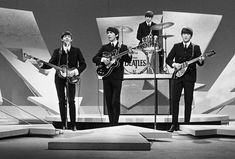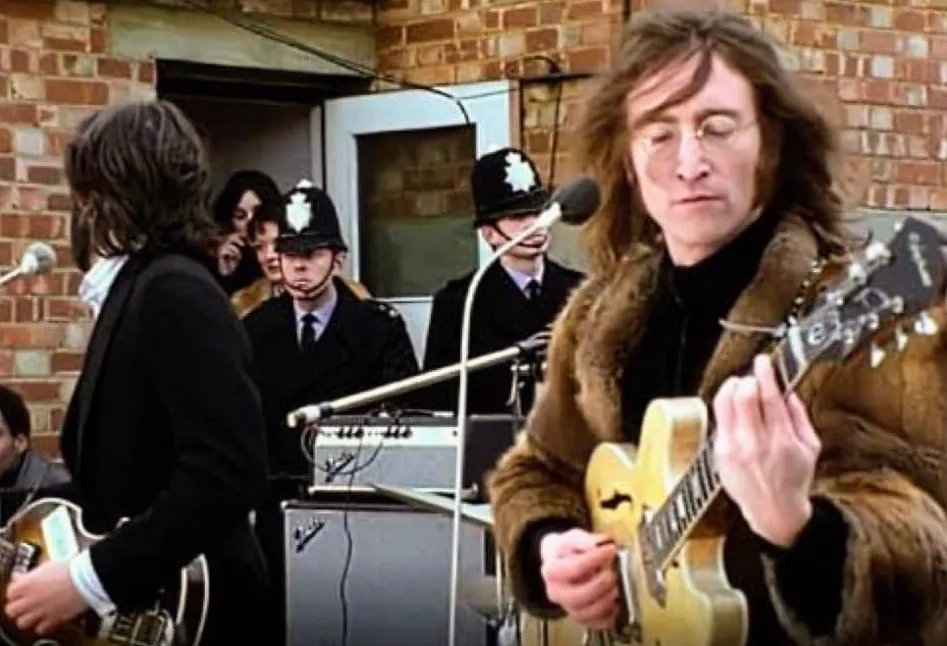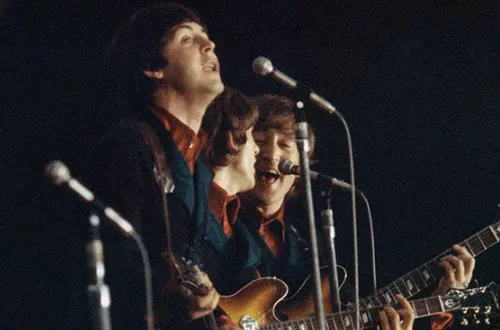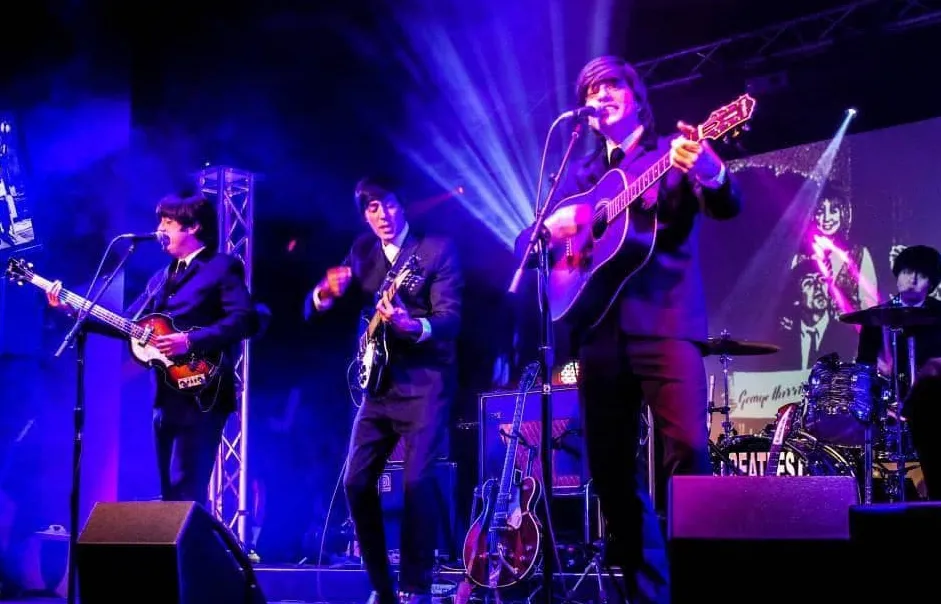About the song
(Watch the video below)
"She Loves You" by The Beatles is not just a song; it's a cultural touchstone, a sonic emblem of the British Invasion, and a timeless anthem of love and joy. Released in 1963 as a single, it quickly became one of the band's most iconic tracks, topping charts around the world and solidifying their status as the undisputed kings of rock 'n' roll.
At its heart, "She Loves You" is a simple yet powerful declaration of love. Written by John Lennon and Paul McCartney, the song's lyrics are straightforward and relatable, capturing the euphoria of young romance. The protagonist receives word from a friend that his former lover still has feelings for him, prompting an ecstatic response: "She loves you, yeah, yeah, yeah!"
What sets "She Loves You" apart is its infectious energy and irresistible hooks. From the opening chord to the final "yeah, yeah, yeah," the song grabs hold of the listener and refuses to let go. Its instantly recognizable melody is driven by driving rhythms, catchy guitar riffs, and buoyant harmonies, creating a sense of urgency and excitement that is impossible to resist.

One of the song's most memorable features is its distinctive call-and-response structure. The verses, sung by Lennon and McCartney, recount the protagonist's conversation with his friend, while the chorus serves as a jubilant chorus of affirmation: "She loves you, yeah, yeah, yeah!" This back-and-forth dynamic adds to the song's infectious charm, inviting listeners to join in and sing along.
"She Loves You" is also notable for its innovative use of language and phrasing. The repetition of "yeah, yeah, yeah" in the chorus may seem simple, but it's incredibly effective, serving as a powerful expression of joy and enthusiasm. The song's lyrics are peppered with colloquialisms and slang, giving it a sense of authenticity and immediacy that resonated with audiences in the early 1960s.
From a musical standpoint, "She Loves You" is a masterclass in pop songcraft. The song's tight structure and concise arrangement make every note count, wasting no time in getting to the heart of the matter. Ringo Starr's propulsive drumming provides the song's rhythmic backbone, driving the beat forward with infectious energy. Lennon and Harrison's guitars add a layer of grit and intensity, while McCartney's melodic basslines anchor the song's harmonic foundation.
"She Loves You" also showcases The Beatles' vocal prowess, with Lennon and McCartney delivering spirited performances that brim with charisma and personality. Their harmonies are tight and precise, blending seamlessly to create a rich and vibrant sound. The song's famous "woo!" interjections, delivered with exuberant enthusiasm, have become synonymous with the band's infectious energy and irrepressible charm.
Released at a time when rock 'n' roll was still in its infancy, "She Loves You" was a game-changer, setting new standards for songwriting, performance, and production. Its impact was felt not only in the charts but also in the hearts and minds of millions of fans around the world. The song's universal themes of love and joy transcended cultural boundaries, resonating with listeners of all ages and backgrounds.

In the years since its release, "She Loves You" has lost none of its magic or charm. It remains a beloved favorite of Beatles fans young and old, its timeless appeal enduring across generations. Countless artists have covered the song, paying homage to its legacy and influence, while its iconic refrain has become a pop culture staple, instantly recognizable to music lovers everywhere.
In conclusion, "She Loves You" stands as a testament to The Beatles' unparalleled talent and enduring legacy. With its irresistible hooks, infectious energy, and timeless appeal, the song continues to captivate audiences and inspire musicians more than half a century after its release. As a symbol of love, joy, and the power of music, "She Loves You" remains an essential part of the Beatles' rich musical legacy, ensuring that its place in the pantheon of pop classics is secure for generations to come.



